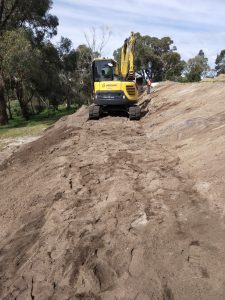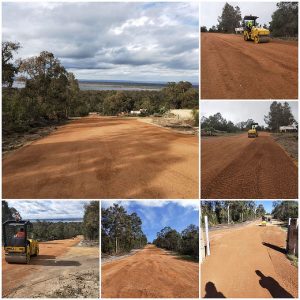Building involves intricate and accurate operations where a multitude of factors have to be weighed. Among the most pivotal is the soil type upon which the construction is to take place. The soil’s characteristics play a substantial role in ensuring the project’s long-term stability and resilience.
Soil Types and Their Influence on Construction
Different soil types have different physical and chemical properties that affect how they react under pressure, how they absorb and retain moisture, and their ability to swell or shrink.
Sandy Soils
These soils are generally good for construction because they tend to drain well and do not swell or shrink with moisture. However, they offer little cohesion, which can lead to instability under heavy loads.
Clay soils
These soils are notorious in the construction industry for their high swelling and shrinkage capacity. Changes in moisture content can lead to significant movement in the soil, which can result in foundation damage.
Silt soils
These soils usually have low bearing capacity and are prone to compression under load, which can lead to instability in building structures.
Soil Investigation and Construction
Soil analysis is a vital preliminary step in any construction endeavour. This involves gathering and evaluating soil specimens to ascertain their chemical and physical traits. The gleaned data serves as a guide for gauging the location’s appropriateness for building and for making informed choices regarding the foundation and other structural components.
Soil Modification and Construction
There are instances where the native soil condition is less than optimal for construction. In such situations, construction experts may choose to enhance or modify the soil. Options include fortifying the soil with additional materials like sand or gravel, altering its chemical composition for better bonding, or compressing it to boost its load-bearing capacity. Undertaking soil modification requires meticulous planning and should only be carried out under the supervision of a qualified geotechnical engineer.
Soil Erosion and Construction
Soil erosion can have a significant impact on construction projects. If the soil type is prone to erosion by water or wind, it can lead to the loss of valuable building land, destabilize foundations, and may even compromise the integrity of the building structure itself. Therefore, it is crucial to employ erosion control measures such as constructing appropriate drainage systems, using erosion control blankets and mats, and planting vegetation to keep the soil in place.
Soil Contamination and Construction
Soil testing is essential prior to construction. By analysing soil samples, we gain insight into the bearing capacity and composition of the soil. On this, engineers base their decisions for the right foundation and possible soil improvement. This prevents construction problems and ensures safety and sustainability.
The Importance of Sustainable Soil Management in Construction
Sustainable soil management is an essential part of responsible construction, hence why site works is so important. This means maintaining the health and vitality of the soil during and after construction. It can include measures such as minimizing soil disturbance, preventing erosion, restoring soil structure after construction, and using construction methods that take into account the unique properties and limitations of soil. Through careful planning and management, builders can help protect and enhance our precious soil resources.
Soil type is a crucial factor that can affect the success and sustainability of construction projects. Understanding soil properties helps in making informed decisions about the suitability of a site for construction and in designing structures that can withstand the specific challenges presented by each soil type. In light of this, a thorough soil investigation is an essential step in any construction project.
In conclusion, the influence of soil type on construction cannot be underestimated. Each soil type has unique characteristics and challenges that must be carefully addressed to ensure durable and stable structures. From soil testing and modification to erosion control and treatment of soil contamination, a holistic and careful approach is required. By pursuing sustainable soil management, we can ensure the integrity of our structures while helping to protect our environment.


